
(908) 381-8160Berkeley Heights
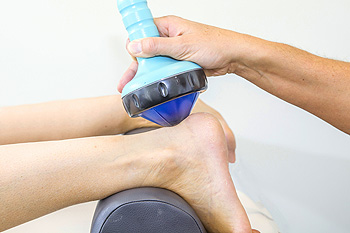
Extracorporeal Shockwave Therapy, abbreviated ESWT, is a proven treatment for chronic musculoskeletal pain. This therapy is done for injuries persisting for over six weeks, where the body struggles to heal itself. ESWT prompts an irritation at the injury site, transitioning it from chronic to acute, which facilitates natural healing. It is often combined with other therapies such as offloading and strengthening exercises. ESWT is particularly effective for plantar fasciitis, which previously necessitated extended rest, cortisone shots, or surgery. ESWT involves delivering low and high energy shockwaves to the plantar fascia, stimulating the body's self healing mechanisms. It enhances blood circulation, encourages cell regeneration, and reduces nerve sensitivity. It is noninvasive and has no side effects. Typically, four to six sessions spaced a week apart are needed for optimal results, with symptom improvement often noticed after just two sessions. Healing continues for up to three months post treatment. If you have plantar fasciitis and are interested in learning more about this type of treatment, it is suggested that you make an appointment with a podiatrist to see if ESWT is right for you.
Shockwave therapy is a treatment commonly used to treat various injuries and conditions, particularly plantar fasciitis in the feet. To learn more, consult with Dr. Janet Leicht from New Jersey. Our doctor can provide the care you need to keep you pain-free and on your feet.
Shockwave Therapy
Shockwave therapy is a new treatment option designed to treat bone conditions such as tennis elbow, shoulder pain, and others. Shockwave therapy uses high intensity sound waves that are directed to the affected tissues of the body with pinpoint accuracy. The effects are very beneficial, leading to a production of collagen fibers, eliminating inflammation.
Who Benefits from Shockwave?
Shockwave is recommended for patients suffering from heel pain and associated problems. Heel pain is a common condition which can be caused by obesity, overexertion, and spending a substantial amount of time on hard floors with your feet exposed and unsupported.
Fast and Easy
The therapy is actually a simple process that can leave patients feeling better the very next day. Shockwave therapy is not as dramatic as it sounds. It enables more blood flow to effected areas, addressing the source of the problem and allowing treatment to last for a long time.
Treatment & Recovery Time
Shockwave treatment will enable your feet to recover quickly. This is especially important since surgery is not required. It is cost effective and does not require the use of anesthesia. This treatment is a better option to surgery, since it is proven safe.
If you have any questions, please feel free to contact our office located in Berkeley Heights, NJ . We offer the newest diagnostic and treatment technologies for all your foot and ankle needs.
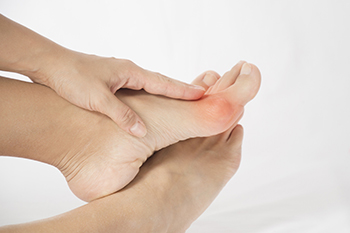
Bunions are a prevalent foot condition, bringing discomfort and challenges to daily life. These bony protrusions, medically known as hallux valgus, develop at the joint where the big toe meets the foot. They often occur from a combination of factors, including genetics, ill- fitting footwear, and structural anomalies in the foot. Defined by the outward deviation of the big toe and the subsequent misalignment of bones, bunions can cause pain, swelling, and difficulty in finding comfortable shoes. Living with bunions requires proactive measures. Choosing shoes that have ample toe space and arch support can help to reduce discomfort. Surgery may be needed for removal if the bunion is severe and affecting the other toes. If you have a bunion, it is strongly suggested that you are under the care of a podiatrist who can provide you with treatment options that are right for you.
If you are suffering from bunion pain, contact Dr. Janet Leicht of New Jersey. Our doctor can provide the care you need to keep you pain-free and on your feet.
What Is a Bunion?
Bunions are painful bony bumps that usually develop on the inside of the foot at the joint of the big toe. As the deformity increases over time, it may become painful to walk and wear shoes. Women are more likely to exacerbate existing bunions since they often wear tight, narrow shoes that shift their toes together. Bunion pain can be relieved by wearing wider shoes with enough room for the toes.
Causes
Symptoms
In order to diagnose your bunion, your podiatrist may ask about your medical history, symptoms, and general health. Your doctor might also order an x-ray to take a closer look at your feet. Nonsurgical treatment options include orthotics, padding, icing, changes in footwear, and medication. If nonsurgical treatments don’t alleviate your bunion pain, surgery may be necessary.
If you have any questions, please feel free to contact our office located in Berkeley Heights, NJ . We offer the newest diagnostic and treatment technologies for all your foot care needs.
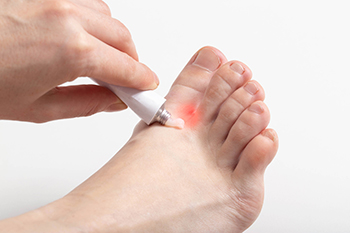
Athlete's foot is a common and highly contagious fungal infection caused by an overgrowth of the tinea fungus. While not typically serious, it can be uncomfortable and annoying. This fungus thrives in warm, moist, and airless environments, making it more likely to spread in places like public changing rooms and showers. Symptoms of athlete's foot include an itchy and scaly rash, blisters, cracked skin, and in some cases, changes to the toenails. To prevent this condition, wear shoes that fit well and are breathable, change them regularly, and avoid sharing towels. For self-care, use topical antifungal treatments like sprays, liquids, or powders and follow the instructions carefully. Continue treatment even after symptoms disappear to eradicate the fungus completely. If these treatments fail or the infection becomes severe, it is wise to consult a podiatrist. This is especially important if you experience pain, redness, or have underlying conditions, such as diabetes or a weakened immune system. For help with problems caused by athlete’s foot, it is suggested that you make an appointment with a podiatrist.
Athlete’s foot is an inconvenient condition that can be easily reduced with the proper treatment. If you have any concerns about your feet and ankles, contact Dr. Janet Leicht from New Jersey. Our doctor will treat your foot and ankle needs.
Athlete’s Foot: The Sole Story
Athlete's foot, also known as tinea pedis, can be an extremely contagious foot infection. It is commonly contracted in public changing areas and bathrooms, dormitory style living quarters, around locker rooms and public swimming pools, or anywhere your feet often come into contact with other people.
Solutions to Combat Athlete’s Foot
Athlete’s foot can cause many irritating symptoms such as dry and flaking skin, itching, and redness. Some more severe symptoms can include bleeding and cracked skin, intense itching and burning, and even pain when walking. In the worst cases, Athlete’s foot can cause blistering as well. Speak to your podiatrist for a better understanding of the different causes of Athlete’s foot, as well as help in determining which treatment options are best for you.
If you have any questions please feel free to contact our office located in Berkeley Heights, NJ . We offer the newest diagnostic and treatment technologies for all your foot and ankle needs.
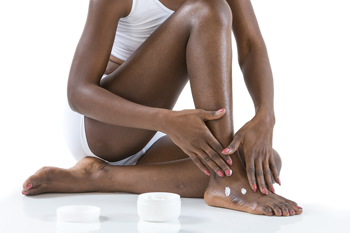
Your feet not only leave a lasting impression but also reveal a lot about your hygiene. They can speak volumes about your foot health, including pain and fungal issues. To avoid these problems, prioritize foot care with these simple tips. First and foremost, maintain foot hygiene by thoroughly cleaning your feet, especially the toenails and between the toes, to prevent infections and pain. Incorporate foot soaks into your routine, using Epsom salt in warm water once or twice a week to soothe your feet. After soaking, moisturize to prevent dryness and cracks. Additionally, always wear appropriate and well-fitting footwear with proper soles for adequate arch support. Avoid excessive use of high heels, which can contribute to foot pain. Rotate your shoes regularly to allow them to air out and avoid fungal growth from sweat buildup. By adopting these daily habits, you'll promote foot health and overall well-being. If you find that you are experiencing foot problems that do not respond to rest, it is suggested that you make an appointment with a podiatrist.
Everyday foot care is very important to prevent infection and other foot ailments. If you need your feet checked, contact Dr. Janet Leicht from New Jersey. Our doctor can provide the care you need to keep you pain-free and on your feet.
Everyday Foot Care
Often, people take care of their bodies, face and hair more so than they do for their feet. But the feet are a very important aspect of our bodies, and one that we should pay more attention to. Without our feet, we would not be able to perform most daily tasks.
It is best to check your feet regularly to make sure there are no new bruises or cuts that you may not have noticed before. For dry feet, moisturizer can easily be a remedy and can be applied as often as necessary to the affected areas. Wearing shoes that fit well can also help you maintain good foot health, as well as making it easier to walk and do daily activities without the stress or pain of ill-fitting shoes, high heels, or even flip flops. Wearing clean socks with closed shoes is important to ensure that sweat and bacteria do not accumulate within the shoe. Clean socks help to prevent Athlete’s foot, fungi problems, bad odors, and can absorb sweat.
If you have any questions please feel free to contact our office located in Berkeley Heights, NJ . We offer the newest diagnostic and treatment technologies for all your foot and ankle needs.
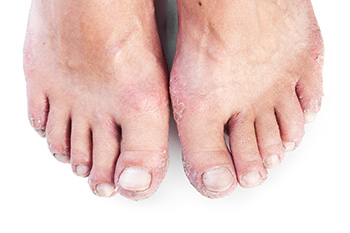
Psoriatic arthritis, or PsA, is a type of inflammatory arthritis that can manifest in individuals with the autoimmune skin condition psoriasis. This form of arthritis primarily affects the feet and ankles, bringing about inflammation and pain in the joints and supporting structures. PsA is frequently associated with various other foot conditions, including Achilles tendonitis, dactylitis, and plantar fasciitis. Achilles tendonitis is characterized by a painful inflammation of the tendon connecting the calf muscles to the heel where it attaches to the heel bone. Dactylitis involves severe inflammation around the toe joints, leading to swelling that gives the toes a sausage-like appearance and induces rigidity and pain when flexing. Plantar fasciitis refers to inflammation where the plantar fascia attaches to the heel bone, causing discomfort and hindrance in movement. As PsA progresses, it can significantly impede walking and performing daily activities, imposing substantial discomfort and limiting one's ability to engage in regular life pursuits. A cure for PsA does not exist yet, but various treatment options are available to manage the condition, slow its progression, and alleviate the associated symptoms. If you suspect or experience symptoms indicative of psoriatic arthritis, it is strongly suggested that you seek help from a qualified podiatrist for a proper diagnosis and personalized treatment.
Arthritis can be a difficult condition to live with. If you are seeking treatment, contact Dr. Janet Leicht from New Jersey. Our doctor can provide the care you need to keep you pain-free and on your feet.
Arthritic Foot Care
Arthritis is a term that is commonly used to describe joint pain. The condition itself can occur to anyone of any age, race, or gender, and there are over 100 types of it. Nevertheless, arthritis is more commonly found in women compared to men, and it is also more prevalent in those who are overweight. The causes of arthritis vary depending on which type of arthritis you have. Osteoarthritis for example, is often caused by injury, while rheumatoid arthritis is caused by a misdirected immune system.
Symptoms
Arthritic symptoms range in severity, and they may come and go. Some symptoms stay the same for several years but could potentially get worse with time. Severe cases of arthritis can prevent its sufferers from performing daily activities and make walking difficult.
Risk Factors
If you suspect your arthritis is affecting your feet, it is crucial that you see a podiatrist immediately. Your doctor will be able to address your specific case and help you decide which treatment method is best for you.
If you have any questions, please feel free to contact our office located in Berkeley Heights, NJ . We offer the newest diagnostic and treatment technologies for all your foot care needs.